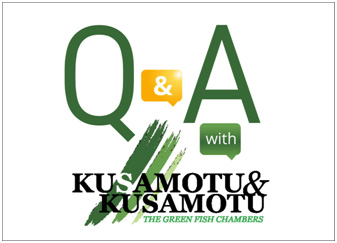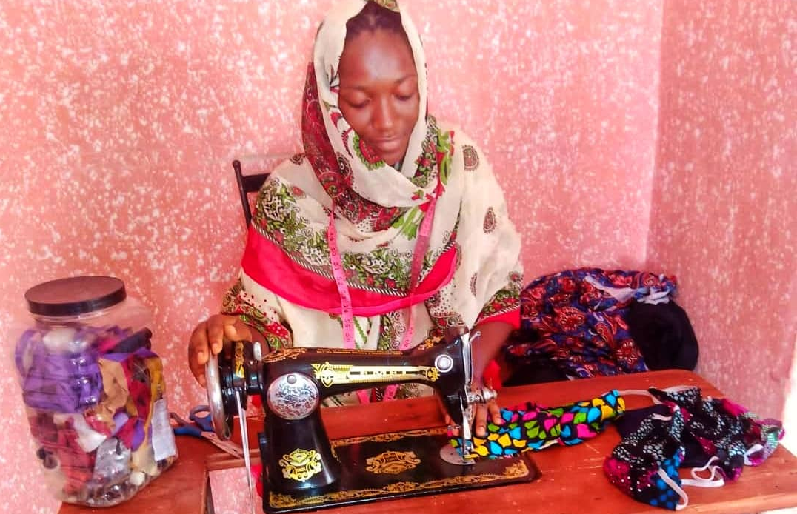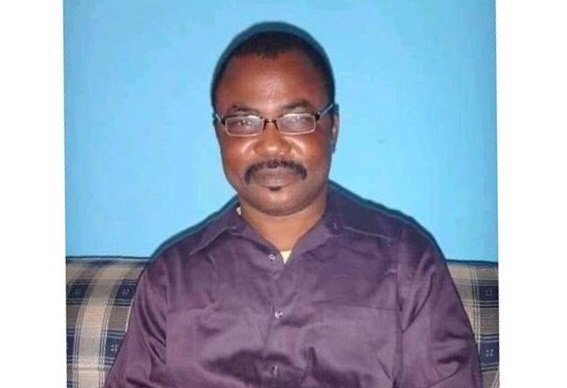Following the advent of the deadly COVID-19 outbreak in Nigeria and globally, Nigeria has been faced with various challenges ranging from tackling of the first index case to a near total lockdown of the economy. The Federal Government through its agencies has intervened in the health sector by putting in place necessary infrastructures e.g. isolation centres, importation of medical safety equipment, provision of palliatives, safety measures and general sensitization of the public. In the midst of the crisis, there are a lot of questions directed towards the Federal Government palliatives in the health sector amidst COVID 19. Here are a few of them.
Q: I am aware of Central Bank of Nigeria (CBN) N100 billion health intervention fund however. I will like to know if I am eligible to participate in it?
A: The eligible participants for the health intervention fund are
- Manufacturers of pharmaceutical drugs and medical equipment;
- Healthcare service providers/medical facilities e.g. hospitals/clinics, diagnostic centers/laboratories, fitness and wellness centers, rehabilitation centers, dialysis centers, blood banks;
- Pharmaceutical/medical products distribution and logistics services; and
- Other human healthcare service providers as may be determined by the CBN from time to time
Q: What are the steps I need to take in order to access this fund?
Advertisement
A: The necessary steps for a corporate entity are as follows;
- Write an application to a PFI (Participating Financial Institution) of your choice
- Include a bankable business plan
- Submit both the application and the business plan to the PFI
Upon receipt of application the PFI will appraise and conduct due diligence. Once the PFI’s Credit Committee has approved the application, it shall be submitted to CBN with the relevant documents attached. Thereafter, CBN will process and disburse funds to the PFI for onward release to the applicant.
Q: How valid is the CBN Intervention Fund as no mention has been made of participants benefiting from it?
Advertisement
A: The CBN Governor Mr Godwin Emefiele on the 10th of May via press time, stated that the bank was perusing applications for funding by Nigerian private and public research organizations interested in the development of vaccines and drugs to fight the pandemic. Notably, the first beneficiary of this fund is Fidson Healthcare Plc which is one of the leading pharmaceutical manufacturing companies in Nigeria. Fidson has received approval for N2.5 billion to expand its plant into the production of Ethical drugs and Intravenous. Presently, other requests and proposals from healthcare organizations are being reviewed for funding.
Q: Can I have an idea of the loan limit and interest rates of the Intervention Fund?
A: The loan limit for a Working Capital is 20% the average of 3 years of the company’s turnover, subject to a maximum of N500,000,000 (Five Hundred Million Naira Only) per obligor. However, where the company is not up to 3 years in operation, 20% of the previous year’s turnover is sufficient. While the loan limit for a Term loan is a maximum of N2,000,000,000 (Two Billion Naira Only) per obligor. Also interest rate shall be at 5% per annum up to 28th February 2021 after which the interest rate will revert back to 9% per annum as from 1st March 2021.
Q: When is the expiration date of this intervention fund?
Advertisement
A: This fund expires on the 31st of December 2030. Kindly note that this date is subject to review from time to time as may be deemed necessary by the CBN.
Q: I am curious to know how many states have activated, released or enhanced the healthcare workers hazard allowance?
A: In a circular dated 21st of April 2020, the Lagos State Government increased the health workers hazard allowance from N5,000 (Five Thousand Naira) to N25,000 (Twenty Five Thousand Naira). Subsequently several states have followed suit. On the 5th of May 2020, Kwara State Government approved a new daily allowance amidst clamour for an improved welfare condition for health workers to N25,000 (Twenty Five Thousand Naira) daily for medical doctors and varying daily allowance for other categories of health workers involved in the fight against COVID-19.
The Kaduna State Government has not been left behind as it recently approved the “Occupational Safety Incentive” for health workers in Kaduna State. The health workers will get between N5,000 (Five Thousand Naira) and N15,000 (Fifteen Thousand Naira) daily depending on their degree of exposure. Also, the Kogi State Governor increased the hazard allowance of its healthcare workers from N30,000 (Thirty Thousand Naira) to N50,000 (Fifty Thousand Naira) to encourage the workers to put in their best. These are just to mention a few. However, despite the Federal Government announcing that health workers will get 50% of basic salary as hazard allowance the Federal Government is yet to implement this.
Advertisement
Q: Asides the CBN healthcare intervention loan, has the Federal Government released any resource as stimulus to the health sector due to Covid 19?
A: The Federal Government following the outbreak of the Covid 19 pandemic has provided N102.500,000,000 (One Hundred and Two Billion, Five Hundred Million Naira) in resources as stimulus for direct interventions in the healthcare sector across the county. Of which N6.500,000,000 (Six Billion, Five Hundred Million Naira) has been made available to the Nigerian Centre for Disease Control (NCDC) and N10,000,000,000 (Ten Billion Naira) to Lagos State for emergency funding.
Advertisement
Q: There has been a persistent call for alternative remedies for Covid 19 vaccines. What efforts have been put in place to fund this initiative?
A: Despite various calls for alternative remedies for COVID 19 vaccines and claims from certain research groups that it has a plant based patented treatment for COVID 19, the National Agency for Food and Drug Administration and Control (NAFDAC) has said that it is yet to receive any pharmaceutical or herbal drugs for analysis of their efficacy as a prelude to their approval for treatment of the disease. The Director General (DG) of NAFDAC on the 19th of May 2020 stated that NAFDAC has now received four (4) applications for products presented for approval for the treatment of COVID-19.
Advertisement
In a bid to fund initiatives in the production of COVID 19 vaccines, the Central Bank of Nigeria (CBN) has disclosed that it is developing a framework to provide grants and long term facilities for Nigerian researchers, science institutions and biotechnology firms in Nigeria who are in the process of developing a COVID 19 vaccine. Upon the validation of such vaccines by health authorities, CBN will immediately release funds. Notably, the House of Representative has also called on the FG to ignore the World Health Organization (WHO) in its efforts to find a cure for COVID 19 and approve alternative remedies to cure the pandemic.
Q: What health measures are in place in the Port and Freight Industries?
Advertisement
A: The Nigerian Shippers’ Council (NSC) is in collaboration with the Nigerian Centre for Disease Control (NCDC) in combating the spread of the COVID 19 virus in the port and freighting industries. COVID-19 sensitization is being carried out by the NSC at various terminals and shipping companies. Doctors from NCDC are also giving talks on the COVID 19 pandemic and the need for social distancing. This is all in a bid to sensitize the freight forwarders, agents and staff of shipping companies of the need to adhere to safety measures amidst COVID-19. Furthermore, on the 13th of May 2020, The NSC, Head of Public Relations made it known that the council had organized packs of hundreds of face masks and hand sanitizers for immediate distribution.
Q: I import medical and health related goods, do I still have to pay import duties? Also, due to skeletal operations at the port I have not been able to clear my consignment. Kindly advice.
A: Firstly, the medical and health related goods must comply with the specified medical supplies exempted from paying import duties and tax for a period of six months starting from 1st of May 2020. The circular issued on the 30th of April 2020 by the Honourable Minister of Finance, clearly states these medical supplies which includes COVID 19 test kits and apparatus, protective garments, thermometers, disinfectants/sterilization products, medical devices and medical consumables amongst others.
Skeletal operations at the ports are now minimal due to the suspension on the total lockdown in the country. Banks are in full operations in line with the curfew imposed by the Government. However, it is important to note that the implementation of the new fiscal policy measures by the Government aimed at exempting importers of specified medical supplies also directs the Nigerian Customs Service (NCS) to expedite clearance of the medical supplies in line with standard Operating Procedures. On the 6th of May 2020, President Mohammed Buhari at press time ordered the immediate evacuation of all imported medical equipment from Nigerian Ports as part of the efforts to tackle COVID 19 pandemic. A visit to the NCS along with necessary documentation should yield positive results.
Q: NAFDAC and Antigen Test Kits
A: There has been a global effort by innovative diagnostic companies to develop test kits to aid in the detection of the virus in patients to guide the management of the disease. In considering Section 5 of the National Agency for Food, Drug Administration and Control (NAFDAC) Act, it states that the agency has the powers to regulate and control the manufacture, importation, exportation, distribution sale, use and advertisement of Medical Devices in Nigeria. Due to the current COVID-19 pandemic NAFDAC has given Conditional Emergency Use Approval of Medical Devices such as COVID 19 Antibody and Antigen Test Kits amongst others. The approved antigen test kits can detect the COVID 19 antigen in patients with or without symptoms. The results are only qualitative (positive or negative). The Agency has received many requests for Emergency Use Authorization for some of such diagnostic test kits to support the national response and ensure expanded testing capabilities.
Furthermore on the 15th of May 2020, the Vice President Prof. Yomi Osibanjo via instagram announced that NAFDAC has slashed the registration fees for SME’s by 80%. This discount is targeted at businesses involved in the production of food & drugs. This intervention will last for 6 months and the registration is to be done through NAFDAC’s e-registration platform. He further said the first 200 SME’s to register will get zero tariff and would be granted waivers on administrative charges overdue for a period of 90 days.
Q: The Infectious Disease Bill or the Compulsory Vaccination Bill?
A: The Infectious Diseases Bill 2020 which has passed its second reading in the House of Representative is meant to create a legal framework for the Federal Government to manage special circumstances surrounding infectious disease outbreaks, like the current Covid-19 pandemic. However, critics of the bill have expressed fears that it could be open to abuse by government officials as the bill gives a lot of disproportionate powers to the Minister of Health and the Director General of the Nigerian Centre for Disease Control (NCDC).
The controversial bill if signed into law, will give the Minister of Health the power to convert any building into an isolation area, while the police will be able to arrest anybody suffering from an infectious disease, without a warrant. It also gives the NCDC Director General the power to close down premises deemed to be overcrowded, in a country where millions live in cramped spaces, while officials authorized by him will be able to detain individuals without any warrant. The challenge here is that such emergency public health legislation ought to have in-built checks and balances as it is clear that the bill gives uncontrollable powers to health officials and the police. Having an infectious disease is not a crime neither should vaccination be made mandatory. In response, Nigerians have insisted that the bill should go through public hearings.
Got more questions on the above subject matter? Send your enquiries to enquiries@kusamotu.com.
Add a comment






